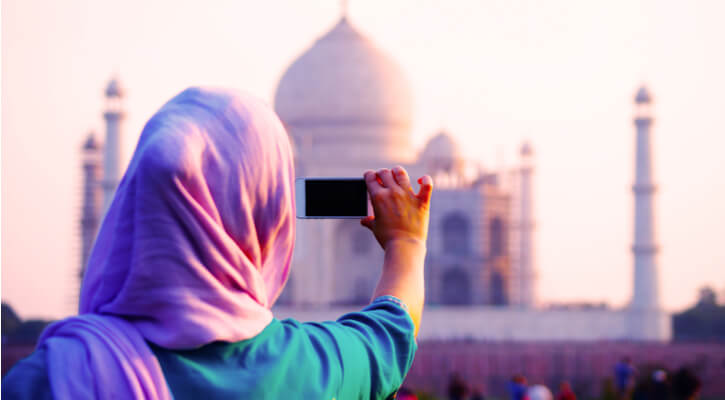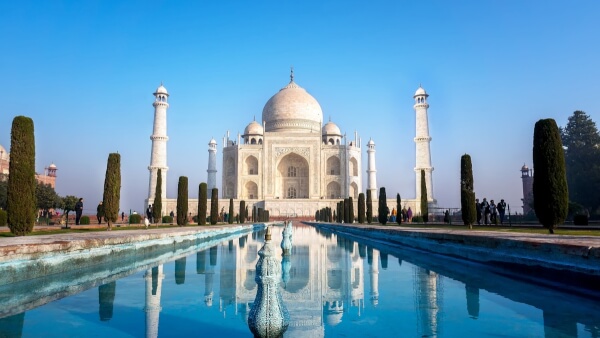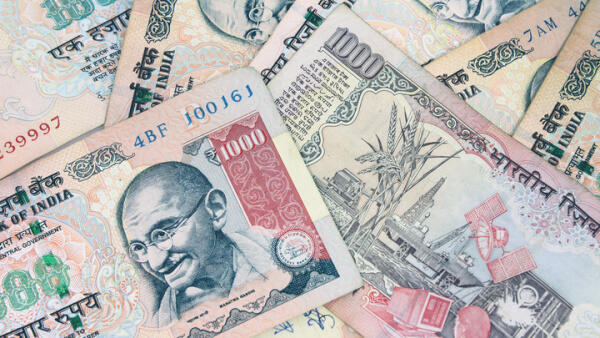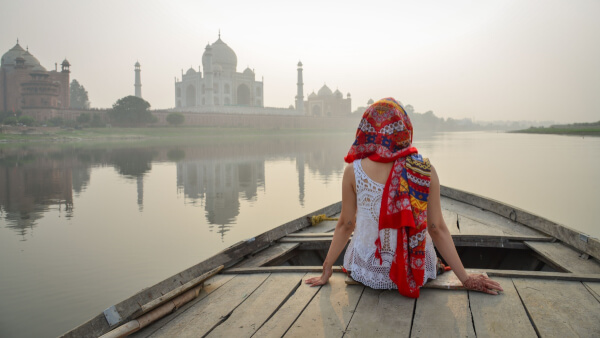Best time to travel to India from UK
Wondering when the best time to travel to India from the UK is? Learn about the weather, planning your trip and things to do in India.

Planning a visit to India? This culturally diverse country has vibrant cities, breathtaking beaches, and majestic mosques. It’s clear why this is a favourite destination for many expats and adventurers.
But before you leave the UK, you might need to get a few shots and jabs so you can stay healthy on your trip. Getting vaccinated is important when you’re travelling because your body will be exposed to new foods, plants, people, animals, and climates. In this guide, we’ll help you figure out which vaccines exactly you might need for your holiday in India.
And if you need a cost-effective way to handle your finances across borders, check out the Wise card from the money services provider Wise. It can help you get ready for your stay in India and save money while travelling abroad. You can pay and withdraw cash like a local for low fees* and at the mid-market exchange rate.
You aren’t obligated to get any shots in order to enter India from the UK, unless you’ve recently travelled to countries with risk for certain diseases. However, there are still vaccines you’ll want to consider. Some are recommended to all travellers, while others are advised only for some vulnerable groups.
In general, it’s advisable to get the necessary vaccines at least 6 weeks before your trip, so try to make time for this.¹
The specific vaccinations you’ll need depend on how long you’ll be in India for and how you plan on spending your time while you’re there.
Let’s cover all the travel vaccinations for India.
All travellers should be up-to-date on routine vaccinations, such as MMR, polio or tetanus. Although most of these vaccines are given to children, it’s common to get boosters when necessary. For example, if you’ve received your last tetanus shot over 10 years ago, make sure you get a booster dose.³
Diphtheria is an infection spread through respiratory droplets. If you’ll be spending time in overcrowded spaces, you’re at a risk of contracting it. This is a standard primary vaccine in the UK, but it’s a good idea to get a booster before travelling.
You can contract hepatitis A through contaminated food and water. Immunisation is particularly important for those with health issues such as liver or kidney diseases.
You most likely won’t come in contact with cholera on a typical trip to India, but floods and certain natural disasters are risk factors. You can get vaccinated if you have underlying medical conditions or stick to basic precautions such as drinking safe water and washing your hands regularly.
Japanese encephalitis is transmitted by the bite of an infected mosquito. Those who travel to rural areas, especially where there are rice fields, are at increased risk of infection. If you choose not to get vaccinated, try your best to avoid mosquito bites.
Many animals can transmit rabies, so it’s highly recommended that you receive this vaccine. Certain activities, such as cycling, trekking or running, also increase the risk of exposure. You should also consider this vaccine if you plan on staying in India longer or if you’re staying in an area with no easy access to medical facilities.
Typhoid is spread through contaminated food and water. Even if you get vaccinated, take care of hygiene and watch what you eat and drink.
If you visit any country that has a high yellow fever risk before your trip, you’ll need a yellow fever vaccination certificate. You risk being kept in isolation for up to 6 days if you don’t obtain it. In general, countries in Africa and South America are considered high-risk, but make sure you check for any updates ahead of time.³
Some parts of India are considered high-risk areas for malaria, so you should do whatever you can to avoid mosquito bites. This type of prevention is very important because you can’t get vaccinated against it. Consult with your doctor about taking antimalarials, especially if you’re immunosuppressed or over 70.
Besides malaria, mosquitoes in India can also cause Zika virus and dengue infections. Pregnant women shouldn't travel to India, and partners of or women who are considering pregnancy should know the risks and take preventative steps before travelling and getting pregnant after their trip. Unfortunately there's no vaccine for Zika, so travellers should know the risks and take preventative measures while they’re there.
Also, it’s not recommended to drink tap water in India. Make sure you avoid drinks with ice and use bottled water both for drinking and brushing your teeth. When eating fruits, try to stick to those you have to peel, such as bananas.⁴
Lastly, you can avoid most digestive issues by eating familiar foods when possible, washing your hands and taking preventive medicines like Travelan or antibiotics.
That’s all you need to know about required and optional vaccines for India, as well as staying healthy on your trip. However, make sure you look for any official updates before heading off.
When it comes to holiday spending, the Wise card, from the money services provider Wise, is a convenient choice. For a one-time cost of just £7, you can spend and withdraw like a local in India and 150+ more countries. You can also send money to pay for a rental car, accommodation, or the like while still in the UK.
With the Wise card, your pounds are automatically converted at the mid-market exchange rate whenever you spend. You’ll just pay a small conversion fee, or no fee if you already have the currency in your Wise account*.
Please see the Terms of Use for your region or visit Wise fees & pricing for the most up-to-date information on pricing and fees.
Sources used:
Sources last checked on date: 25-July-2024
*Please see terms of use and product availability for your region or visit Wise fees and pricing for the most up to date pricing and fee information.
This publication is provided for general information purposes and does not constitute legal, tax or other professional advice from Wise Payments Limited or its subsidiaries and its affiliates, and it is not intended as a substitute for obtaining advice from a financial advisor or any other professional.
We make no representations, warranties or guarantees, whether expressed or implied, that the content in the publication is accurate, complete or up to date.

Wondering when the best time to travel to India from the UK is? Learn about the weather, planning your trip and things to do in India.

Read our helpful guide to money, banks and currency in India, plus info on cards and currency exchange.

How to travel to India from the UK, including the type of visa you need, how you can apply, how much it costs, and the best way to exchange money.

Travelling to the USA? Read our roundup of the best UK credit cards to use in the USA, comparing interest rates, fees and more.

Travelling to India? Read our roundup of the best UK credit cards to use in India, comparing interest rates, fees and more.

Read our guide on the best travel card for India, including card comparisons and travel tips.